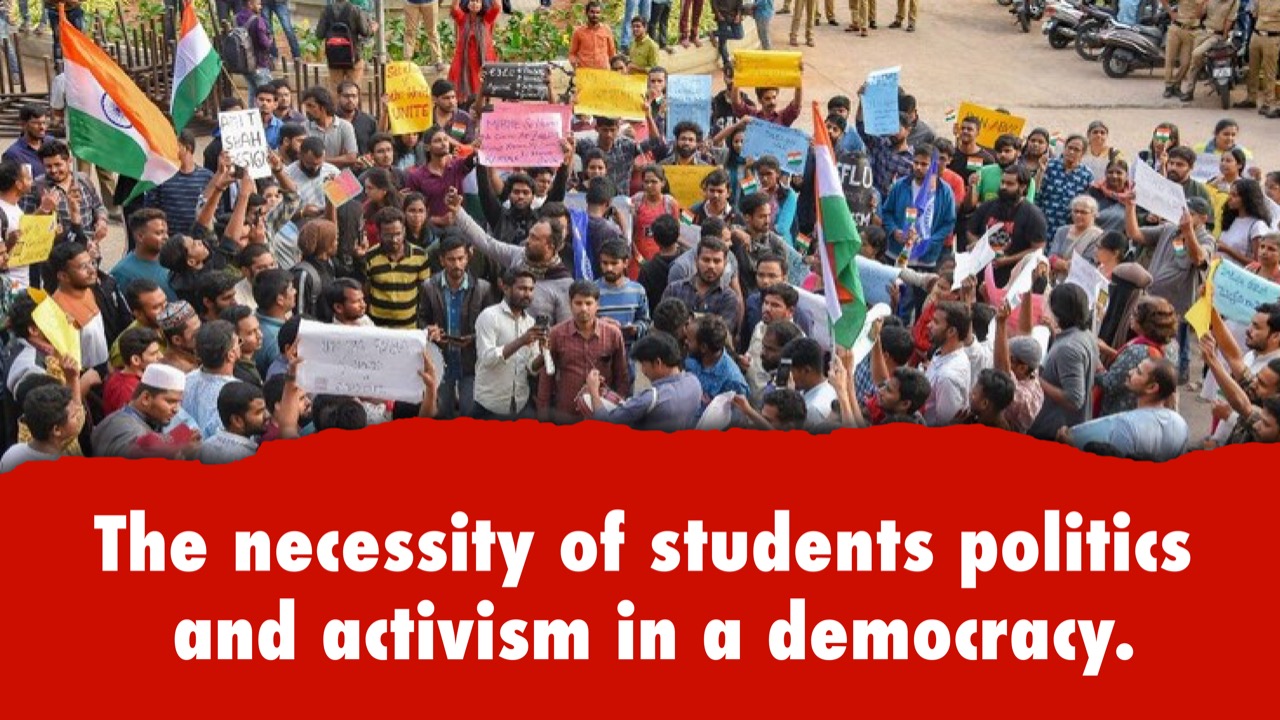
Written By Gurmehar Kaur
An Indian mind, at any given time, is subconsciously consumed with two things: Bollywood and politics.
In between college classrooms, library sessions for the assignment due, the big presentation for the meeting, the next chunk of manual duty, the next customer on your tea stall, and the next meeting to be held in your cabin, our conversations are dominated by these two cornerstones of Indian life. No matter who you are or where you come from, politics and Bollywood remain constant. We worship these larger-than-life figures and want to be larger than life ourselves. We want grander lives, like the ones we see on our television screens; we want to be the Shah Rukh Khans and the Narendra Modis. We are a country of 1.5 billion people under 35, all with big shining stars in our eyes.
Early 2018, a year before India’s general election that was predicted to account for the highest percentage of youth voters in history, I was on a mission to find India’s youngest politicians. I wanted to find out their motivations, personal ambitions, and what makes them. There were two types of politicians- student activists and family dynasts. Throughout my fieldwork and my student activism, like so many Indians, I asked myself- would I ever want to join active electoral politics? Like many young people, I too deeply love my country and wish for it to reach the greatest highest while being acutely aware of issues that hold it back. Was joining politics the answer to this deep-seated need to do something for my country? If there was, then how do I join? The solution for those of us without the paraphernalia to support this wild ambition has always been student and youth activism and politics. However, certain political voices are hell-bent on shutting down this avenue of political entry for those like us by demonizing student politics and undermining democracy.
Today the same outfits that vilify and dismiss student involvement in activism and politics forget that their existence is rooted in these practices. The BJP and RSS, which hold the supreme power today, have their history of student movements, particularly during the emergency period under Indira Gandhi’s term as prime minister. Late Arun Jaitley is one such student who pioneered the student activism to political career shift continuing to be one of the most successful student activists turned politicians. Today we need the training, platform and political sensitization provided by a robust environment of student electoral politics to produce fresh leaders.
But it’s important to note that student activism doesn’t exist to produce political leaders: it is the soul of India’s birth and existence. The Indian independence movement included multiple youths and student organizations, and student activism created not only the Nehru’s and Gandhi’s of the world but people in business like Dhirubhai Ambani.
For a long time, Junagarh had been asking for constitutional reforms and popular representation in the region, giving birth to the Praja Mandal agitation that became far more volatile after Indian independence. The ruling Nawab resorted to unleashing a reign of terror to dampen the protests. The founder Ambani, who was in his teens, not only joined the movement but organized a group of students to write slogans on the walls across the town in the middle of the night. “He designed, painted and scribbled posters in secret hideouts, carried banned newspapers like Janmabhoomi and Navajeevan hidden under his shirt for rebel leaders, and distributed leaflets concealed in his school bag.”
Politics isn’t just for politicians or political parties but for every citizen it impacts. It has been and continues to be essential for democracy.
Today many of those in power flout the idea that students should exclusively focus on their education and not get distracted by political activity. But the question that needs to be asked of these detractors is why education must be defined as limited to just what is taught off the books “inside” the classroom. Democratic practices such as participating in student government and organizing rallies, debates and discussions should not be labelled as activities that are different from traditional book-to-brain education. Being a part of such activities does what education promotes- critical thinking.

Leave a Reply